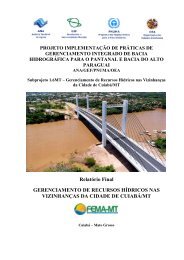Rt€@lll
Rt€@lll
Rt€@lll
You also want an ePaper? Increase the reach of your titles
YUMPU automatically turns print PDFs into web optimized ePapers that Google loves.
-il1 -<br />
the view that nature should subserve the interests of mankind. Thus conservation must be<br />
selective; thene is merit in preserving the crown pigeon - because it is edibte; and the New<br />
Zealand black robin - because it is beautiful. There is common sense in maintaining a wide<br />
range of gene pools because we are woefully ignorant of the economic potentials of many<br />
plant and animal species; but there is none whatever (unless we believe in tnansmigration of<br />
souls) in preventing Lhe extinction of nrosquitos or sandflies. Moreover, there is little point in<br />
preserving any natural resource unless people are able to enjoy its fruits. And the challenge<br />
to management is to develop methods which ensure [hat those fruiLs remain to be enjoyed by<br />
all who so wish.<br />
I would not, of course, argue that all foresLers are beyond reproach when it comes to<br />
concern for humanity: thene are still many who are happier in a Procrustean pine plantation<br />
than among people (and of course there are eommercial timber interests who rank eompany<br />
profits before the national interest). BuL, as in all things, there is a golden rrean - a balance<br />
which we need to find before it is too late. We shall not reach it lhrough distortion,<br />
half -truths and arrogance. Nor, I am af raid, shall we f ind it through lhe delermined<br />
objecti vity to which our scientists aspire. Let us remember the legend of Occamrs ass - the<br />
beast te[hened equidistantly between two equally desirable bundles of hay; because of its<br />
strict objectivity , it (inevitably) starved to death!<br />
More important. is a humanist commitment to future generations. In conclusion, may I<br />
apply the famous Nigerian credo concerning land to our Pacific environment? I! "belongs to a<br />
vast family of which many are dead, a few are living and countless numbers are still unborn.'r<br />
It does not belong to foresters, or sawmillers or blinkered environmentalists. Let all of us<br />
endeavour to manage it with honesLy, awareness and humility.<br />
REFERENCES<br />
ADB. 1978. Sector paper trl foresLry and forest industries. Asian Developmenl Bank, Manila,<br />
Philippines. 78 p.<br />
FAO. 1982. World forest products, demand and zupply, 1990 and 2000. FAO Forestry P4er<br />
29. Food and Agricultune Organization, Rrne, ltaly.<br />
Barney, Genald O. (Study Direclor). 1980. The Global 2000 Report to the President, Entering<br />
the Twentyf irst Century. Government Printing Office, Washington, D. C.<br />
Passmore, John. 1974. Manrs responsibility for nature. Duckworth.<br />
Richardson' S. D. 198I. Forestry and the environnrent in the South Pacific. SPREP Tqic<br />
Review 8. South Pacifie Commission, Noumea, New Caledonia. I1 p.<br />
Richardson, 5. D. (ln press). Unnatural practices. World Wmd.<br />
Richardson, S. D. and .I Richardson. f984. Agroforestry and the Pacific Islands. Jotrrnal of<br />
Pacific Studies (in press).



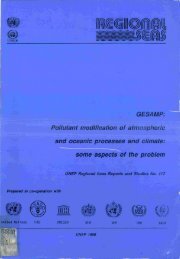
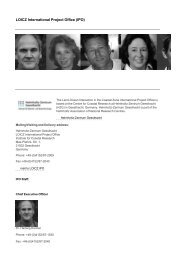
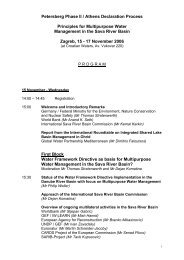
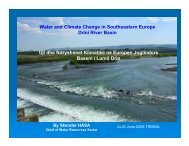
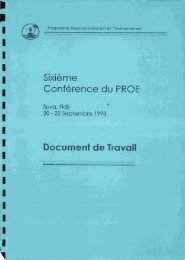
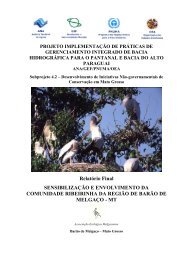
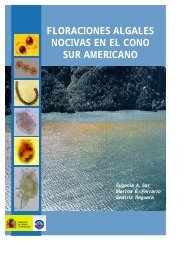
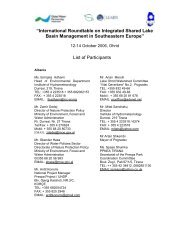
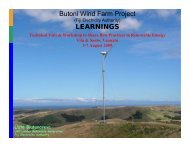
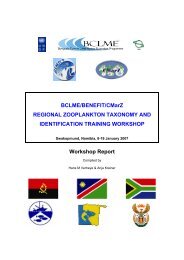
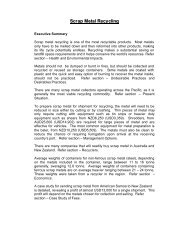
![R]€@lll](https://img.yumpu.com/7594335/1/175x260/reurlll.jpg?quality=85)
